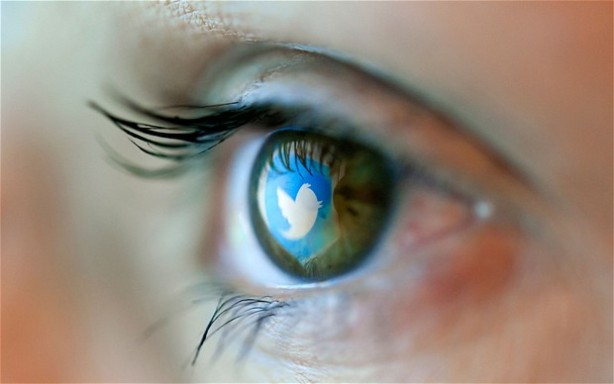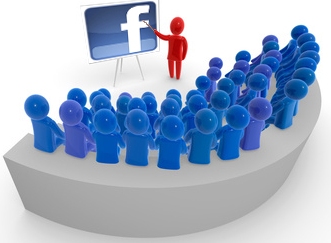Download all of your Facebook files…SCARY!!! Do you remember everything you’ve said or done on Facebook? Well they do! And now you can download the file that they keep on you!
Ok so this isn’t that new, but most people I talk to still have no idea about this and many other important elements of using Social Media. So, when you click the “Download a copy of your Facebook data” link, be prepared for some surprises! Your data includes:
- Any photos or videos you’ve shared on Facebook!
- Your Wall posts, messages and chat conversations!
- Your friends’ names and some of their email addresses!
But what else do they keep record of? What aren’t they sharing with you? What information about you are SM providers using to profit through? Here is some information that is worth keeping in mind:
Copyright: Who Really Owns Your Photos, Video and Media?
A lot of organizations and people maybe surprised to learn that when you post media such as videos, songs, and photos to social networks like Facebook and YouTube, you grant them (and sometimes their partners) a worldwide, non-exclusive, royalty-free license, to use your work, reproduce it and distribute it including for promotional purposes. And guess what? Because it’s royalty-free they don’t have to pay you a dime even if they used footage of that awesome video you directed in one of their TV ads. Check out YouTube’s terms on section 6C (similar clauses can be found on many network’s terms of service). And guess what, they don’t even have to notify you that they used it.
Your Brand Or Profile Photo Could Be Used For Product Endorsements Without Consent
It seems that Facebook maybe thinking about giving third party apps or networks the right to use your name or pictures in ads in the future. If you dig into their Statement of Rights and Responsibilities, it contains a tiny clause and a link about your right not to appear in third party ads. It then leads you to another link and after a while you finally see a clause that says “Facebook does not give third party applications or ad networks the right to use your name or picture in ads. If we allow this in the future, the [privacy] setting you choose will determine how your information is used.” This could have a huge impact on nonprofits, brands, and people who could potentially be used in ads; serving as endorsements without ever realizing or granting the company or even political campaign permission. Check your settings now!
Privacy Issues
As new features are rolled out, some networks like Facebook make changes to the community without your consent and input. Facebook has riled its community up several times over the last few years by releasing new features and sharing people’s personal info without notifying them properly. To make matters worse, they have forced people to search for the settings that allow them to opt out to maintain their privacy. Why does Facebook do this? Probably because founder, Mark Zuckerberg believes that that there is no privacy on the Internet. And while Zuckerberg has a point, (if you don’t want something public, don’t post it online) enough users think that they have a right to keep their data private and the FTC thinks so too! In November of this year, the FTC Chairman Jon Leibowitz said “Facebook is obligated to keep the promises about privacy that it makes to its hundreds of millions of users. Facebook’s innovation does not have to come at the expense of consumer privacy.
How Your Personal Data Is Used
Every time someone signs up for Facebook, Twitter, or YouTube they give away their personal data and rarely question it. This data is stored and used for marketing purposes. That’s how marketers are able to do such niche targeting on platforms like Facebook. Over on YouTube they “may record information about your usage of the site, such as the channels, groups and favorites you subscribe to, which other users you communicate with, the videos you watch, the frequency and size of data transfers, and information you display about yourself as well as information you click on in YouTube.” Put simply, YouTube records and monitors every little thing you do on their network.
Now as a marketer, you probably like the idea of doing such niche targeting. I do too. But individual users often don’t realize how this data is being collected and used. Social networks should be transparent about the data they use for marketing purposes and not bury layers of privacy related links filled with legal jargon that very few people will be able to interpret. Sometimes when I read these privacy statements, I think they may as well have posted it in a 3-point font because no one will really understand it unless you studied law, and in particular Internet law.
No Clear Laws To Protect People From Online Harassment
“An estimated 40% of data being pushed onto the web is coming from social networks,” according to Sean Golliher, who founded and writes for the search engine marketing journal SEMJ.org. And while a lot of the data is everyday chatter of people sharing information, we have all heard the horror stories of people being cyber stalked or cyber bullied.Unfortunately the legal system is still struggling to understand the legal implications of technology, the Internet and social networks. Today there are a lot of old laws on the books that the legal system relies on and it is not adequately protecting people from online harassment.
For example, for “over a period of more than 18 months, Buddhist leader Alyce Zeoli received 8,000 harassing and threatening tweets from William Lawrence Cassidy. In 2010, Zeoli reported the harassment to the FBI and pressed charges. In mid December, a US federal judge dismissed the case, saying that “uncomfortable” speech on sites like twitter is protected by the Constitution, according to Annie Urban who blogged about the case on the Care2 News Network.
“The judge in the case appears to misunderstand the nature of twitter. He noted that, unlike a “telephone call, letter or e-mail that is addressed to and directed at another person,” the postings on twitter (a “bulletin board”) could simply be turned on or off (source: New York Times). While it is possible to block people on twitter (just as you could block a particular phone number or e-mail address), there is nothing stopping that person from creating a new account and continuing the harassment. Twitter is, in fact, very much like a telephone call, letter or e-mail that is directed at another person,” said Urban.
Secret Algorithms That Claim Who Is Influential And Who Isn’t
To feed the obsession with social media, products like Klout have been developed to supposedly measure social influence. These vendors claim that if you give them permission to access your data, they can determine your influence by looking at your tweets, Facebook and LinkedIn updates, who is following you, etc. Here’s the problem. 1) Many of these vendors have proprietary algorithms so no one has any clue what they are truly measuring. 2) You can’t divorce offline influence from online.
Some of these vendors like Klout have collected information about people that they were never authorized to collect –including information about minors. How could this happen? Up until early November, Klout would score registered users Facebook friends and Klout’s algorithm could not tell who was a minor.
My advice. Be strategic and focus on what matters most – finding and cultivating the people who care about the issues you are working on whether that is 2000 people or 200,000 people.
Here’s how to get your Facebook data file:
How can I download my information from Facebook?
You can download your information from the Account Settings page.
- Click the account menu at the top right of any Facebook page
- Choose Account Settings
- Click on “Download a copy” of your Facebook data
- Click the Download button on the following page
Because this download contains your profile (timeline) information, you should keep it secure and take precautions when storing, sending or uploading it to any other services.
Author: Graham Knowles @RAWTimes


















